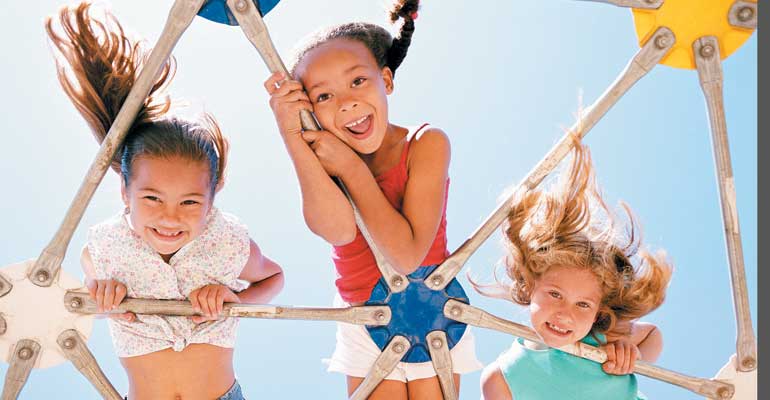When my son, Eric, was 8, he came home from school one afternoon reporting that he had a bad day. A girl in his classroom had shared birthday cupcakes with the kids, which Eric did not eat because of a food allergy.
One of his friends loudly announced to the class that Eric didn’t eat a cupcake because he was adopted. Eric didn’t know what to say, and didn’t discuss the incident with any of the kids or the teacher. For the rest of the afternoon he felt singled out and isolated.
We are not an obviously adoptive family, so I was uncertain about how much to share with Eric’s teacher about his adoption. At the time, it wasn’t as common as it is these days to discuss adoption in school.
We were advised to be open with Eric about his adoption when we first became a family, but there was little guidance about how to approach the larger community. Adoption was considered a private, family matter, still obscured by secrecy and stigma.
I became more open about adoption as I gained experience parenting our son, and then his sister, Beth, whom we adopted five years after Eric. Fortunately, society’s attitude about adoption was changing, too. But even today, adoptive parents are anxious as their child leaves home for the wider world — namely, school.
Any parent has a right to be nervous as their child enters school for the first time, or moves on to the next grade. There are so many unknowns for kids to face: new surroundings, new adults telling them what to do, new children who may or may not become friends. Add adoption to this mix, and a parent’s concern can really ratchet up.
How much should we tell the school about the way our family was formed? Do we need to educate the school community about adoption, and, if so, how? How do we prepare our child for questions and comments about adoption and, if it is part of the equation, about race? Let’s tackle these questions one at a time.
Should we tell?
Most adoptive families are happy and proud about the way they came together. And parents start from day one to instill that sense of pride in their children. We tell them that adoption is a wonderful way to form a family, as is becoming a family by giving birth to a child. For us it’s normal, it’s ordinary, it’s the way we did it.
But even as we raise our children this way, we know that society doesn’t always see it the way we do. Certainly many people are accepting, many even joyous, about adoption. But there are those who still single out our children as somehow odd, different, even “special” (another way to say “different”).
Many parents say that, yes, they must inform the school and teacher that their child was adopted. The subject will come up — during the ubiquitous family-tree assignment, or through thoughtless comments made by kids and adults — so they feel that it’s best to alert the staff so they’re prepared to handle such situations when they arise. Of course, when your child is of another race, it’s easy for others to see that he was adopted.
Others feel that adoption is private, a family matter, and not relevant where school is concerned. They do not want their child singled out for societal misconceptions (“He has separation anxiety because he was adopted”) to come into play. They feel that when a child is older, it is her choice to tell or not to tell — it’s her story to share.
Adoptive parents on both sides of this question report acting on their convictions with positive results. It seems, then, that to tell or not to tell is a personal decision, to be based on what you feel is best for your family.
This being said, most adoption professionals believe that telling the school is a good idea. Consider, given your openness at home, “how your child might interpret your decision not to talk about his adoption,” says Debbie Riley, director of the Center for Adoption Support and Education (C.A.S.E.) in Silver Spring, Maryland. “If he is unaware of your decision, it’s possible that he will mention his adoption in class. In that case, his teacher may be unprepared to respond positively, and may in fact believe your silence means that you do not want it discussed in any way.”
Should we educate?
Before our children enter school, we protect them. “If inappropriate comments are made, we either set protective boundaries or educate the person making the comments,” says Adoptive Families columnist Lois Melina. “But when children enter school, we can no longer be the buffer between them and those who are less accepting of adoption.”
So we entrust our children to the care of their teachers. As we do, we can work with teachers and other school personnel to help them understand adoption and how to support our children and enlighten their classmates. By talking with teachers about different ways that families are formed, by offering information about adoption as it relates to lesson plans and social interactions, by giving adoption talks in classrooms, we can help ensure that our children are accepted and supported, even as their privacy is protected.
“It’s far more effective to be proactive rather than wait until an incident occurs,” says Melina. So make an appointment early on to talk with your child’s teacher. Even if you are not a “visible” adoptive family, communicating with the teacher can help her manage classroom situations more effectively. As I saw in my son’s situation, children sometimes say things that are hurtful. If my son’s teacher had taken appropriate action, Eric might have felt better that day.
After talking to the teacher, ask your child if he wants you to share an activity or talk with his class. Children in early grades are often more open to this, before they become more self-conscious about being adopted.
How do we prepare for our child?
Perhaps the most important thing we can do for our school-age children is to help them fend for themselves. This is certainly true when it comes to fielding comments and questions about adoption. While we can’t prepare our children for every question and situation that might arise, we can let them know that they can come to us for advice.
It’s also important for children to know that they have choices when peers ask questions. Help your child choose which pieces of information she wants to share with people outside her family, and whether she wants to answer a question at all.
Let your young child know which information is private, known only to the family, and which information is for sharing. In her book, Making Sense of Adoption, Melina says that information should usually be kept private “if it refers to a child’s genetic and social history — who [the birth parents] were …why they placed their child for adoption, and actual or possible medical conditions the child might have.”
Generally, the younger the child, the more support she will need with responding to others’ comments. How your child responds depends on her maturity, personality, mood, who is asking the question, and what she understands about her own adoption. For example, a young child may be asked by a peer, “How come you don’t look like your mommy?” The child who is cautious by nature might choose not to answer at all. An outgoing child, however, may offer more than enough information about his background and present family life.
Practice, practice, practice
Role-play questions. You be the friend who asks a question, and your child answers. Together, think of other possible responses. To the above question, she might:
- Answer briefly and directly: “Because I was adopted from China, and my mother was born in America.” In this way, she shares general information.
- Ask a question in return: “Why do you want to know?” This can help her assess the motive for asking, and give her time to come up with an appropriate response.
- Turn the tables: “Do you look just like your mommy?” This gets the peer to think about who seems different to whom.
- Choose not to answer, and walk away. It’s her right to say nothing.
Don’t be surprised if your child does not jump at the opportunity to role-play or discuss adoption questions. Children often have uncomfortable encounters at school that they never mention at home. Bring up the topic from time to time, even if your child does not.
The kinds of questions your child gets will vary, depending on her age. Kindergarteners may ask about differences in physical characteristics, such as hair and skin color, or about differences in the family configuration, such as a single parent or two parents of the same gender. Kids in early elementary grades who know a child was adopted will ask questions to help them make sense of things, such as the reasons for adoption and details about the “real” mother. Children may ask questions in a blunt way, as they do not yet have the skills to be tactful. Most often, they just want to understand adoption, including how it might affect them (could they lose their own parents and be adopted?).
Whatever the reason for questions, your child will feel stronger if she knows that they might come, and if she’s prepared to field them. And she needs you to keep the dialogue going. The more ongoing support she has from you and the school staff, the more likely she is to feel comfortable and confident in the classroom, the lunchroom, and the playground — throughout her school years.



